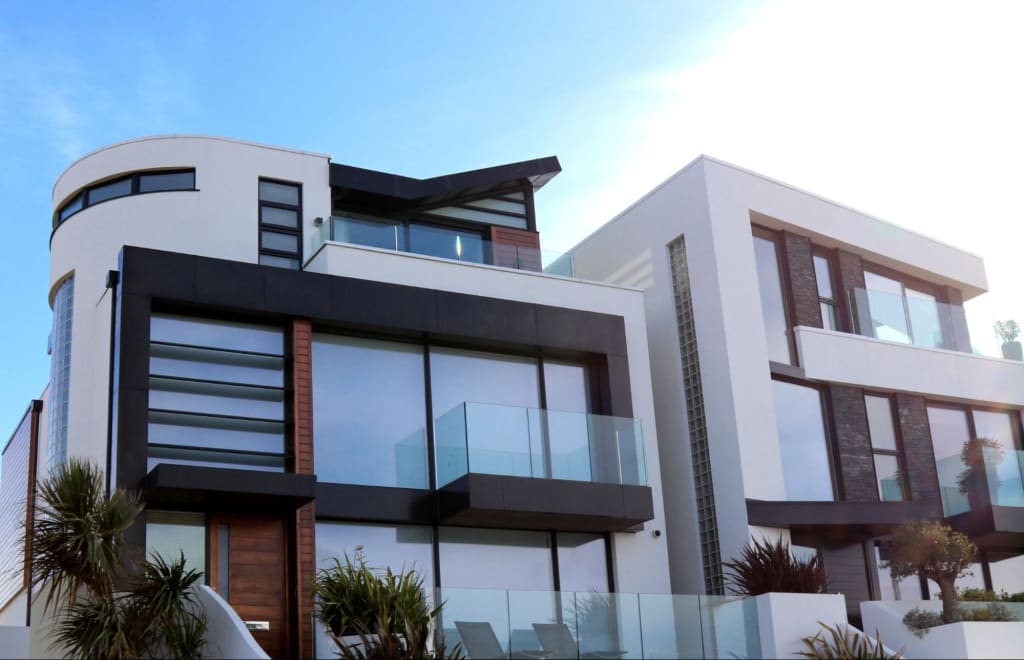
Are you considering buying a house? It can be a big decision, and you must ensure you’re ready before taking the plunge. In this article, Nawy Estate outlines the factors you need to consider to make an informed decision about whether or not to buy a house. So if you’re on the fence about whether or not it’s time to become a homeowner, read on!
1. Check your finances.
Buying a house is no small feat financially. In addition to the mortgage, you’ll have to pay for things like homeowners insurance, property taxes, and repairs/upkeep. Here are some aspects of your finances to consider before buying a house:
Credit score
Before looking at houses, you should check your credit score. A good credit score will give you a better chance of being approved for a mortgage and getting a lower interest rate.
A good credit score is generally considered to be a score of 700 or above. You can get your credit score free from sites like Credit Karma or Annual Credit Report.
Debt-to-income ratio
Your debt-to-income ratio is the percentage of your monthly income that goes towards paying down debts. Lenders will look at this number to know how much financial breathing room you have each month.
Ideally, your debt-to-income ratio should be 36% or lower. You can calculate your debt-to-income ratio by adding up all of your monthly debts (including your mortgage payment) and dividing it by your gross monthly income.
Income and employment stability
Are you employed full-time, and do you have a steady income? Lenders will want to see that you have a stable job and income before approving you for a mortgage.
You may have more difficulty getting approved for a mortgage if you're self-employed. This is because lenders like to see consistent work history and income. However, it’s not impossible – you may just have to provide additional documentation.
Down payment
Ideally, you should aim for a 20% down payment when buying a house. This will help you avoid paying private mortgage insurance (PMI), an insurance policy that protects the lender if you default on your loan.
If you can’t come up with a 20% down payment, you may still be able to qualify for a mortgage. However, you’ll likely have to pay PMI, increasing your monthly mortgage.
Saving for a down payment can take time, so start setting aside money as soon as you know you want to buy a house.
2. Consider your plans.
Are you planning on getting married, starting a family, or changing jobs in the near future? These are all factors you need to consider before buying a house. Here are some things to keep in mind:
Marriage and Children
If you’re planning on getting married or starting a family, you may want to wait to buy a house. This is because your financial situation will likely change once you have children.
You may want to wait until you’re more settled in your career and have a better idea of your long-term income.
Job security
Many people start looking at houses once they get a new job or a promotion. This is because your income may increase, giving you more financial breathing room.
However, you should ensure job security before buying a house. No one likes being house-poor and struggling to make ends meet. Wait six months to a year in your new job before buying a house.
Retirement
Unfortunately, life doesn’t always go according to plan. You may want to wait to buy a house if you're retiring soon. This is because you may not have the income to cover your mortgage payments once you retire.
Of course, this isn’t always the case. It depends on how much money you have saved for retirement and how much your mortgage payments will be.
3. Think of your lifestyle.

Sometimes, the perfect house isn’t always the best option. You may be better off renting if your lifestyle doesn’t fit the “traditional” mold of a homeowner. Here are some factors to consider:
Do you like to travel?
Buying a house may not be the wisest move if you love to travel or have a job that requires you to travel often. This is because you’ll likely be gone more often than home, making it difficult to keep up with maintenance.
What are the reasons you want to buy a house?
Are you looking to buy a house because you want to rent it out? Or are you looking for a place to call home? There’s no wrong answer, but it’s important to know your motivations before buying a house.
If you’re looking for an investment property, vacation homes and beach houses like those at Nawy Hacienda West are particularly popular. This is because they can generate income when you’re not using them. Just be sure to factor in the cost of maintenance and repairs when evaluating if a vacation home is a good investment.
How much can you afford?
This is likely the most important factor to consider before buying a house. You need to make
4. Look at the housing market.
The housing market is always changing, so it’s important to stay up-to-date on the latest trends. This will help you determine if now is a good time to buy a house. Here are some things to keep in mind:
Prices are rising
If prices of houses in your area are rising, it may be a good time to buy. This is because you may be able to sell your house for more money in the future.
However, you need to be aware of how much prices are rising. If they’re increasing too quickly, it may not be a sustainable market. In this case, you may want to wait to buy a house.
Inventory is low
If more buyers are available than houses, it’s considered a seller’s market. In this case, you may want to buy a house sooner rather than later. This is because prices are likely to increase as demand for housing increases.
On the other hand, if more houses are available than buyers, it’s considered a buyer’s market. In this case, you may wait to buy a house as prices will likely decrease.
Mortgage rates are low.
Check the current mortgage rates before buying a house. If rates are low, it may be a good time to buy as you’ll have lower monthly payments.
Remember that mortgage rates are just one factor to consider when looking at the cost of a home. You also need to factor in insurance, taxes, and repairs.
5. Your rent is increasing.
If the monthly rent cost increases, it may be a good time to buy a house. This is because your mortgage payments may not be much different than your current rent payments.
Of course, other factors must be considered before switching from renting to owning. For example, you’ll need to factor in maintenance and repair costs.
You should also consider how long you plan on staying in the house. If you think you may move soon, it may be better to wait to buy a house.
6. You have more than enough set aside.
Ideally, you should have 20% of the cost of the house saved for a down payment. This is because you won’t have to pay private mortgage insurance (PMI) if you put down 20%. PMI is an insurance policy that protects the lender if you default on your loan.
However, it's not just a down payment you need to save for. You should also have enough money for closing costs, moving costs, repairs, and maintenance.
The Bottom Line
Only you can decide if you’re ready to buy a house. However, these are some factors to consider before making the decision. Weigh the pros and cons of buying a house and decide what’s best for you.





Comments
There are no comments for this story
Be the first to respond and start the conversation.